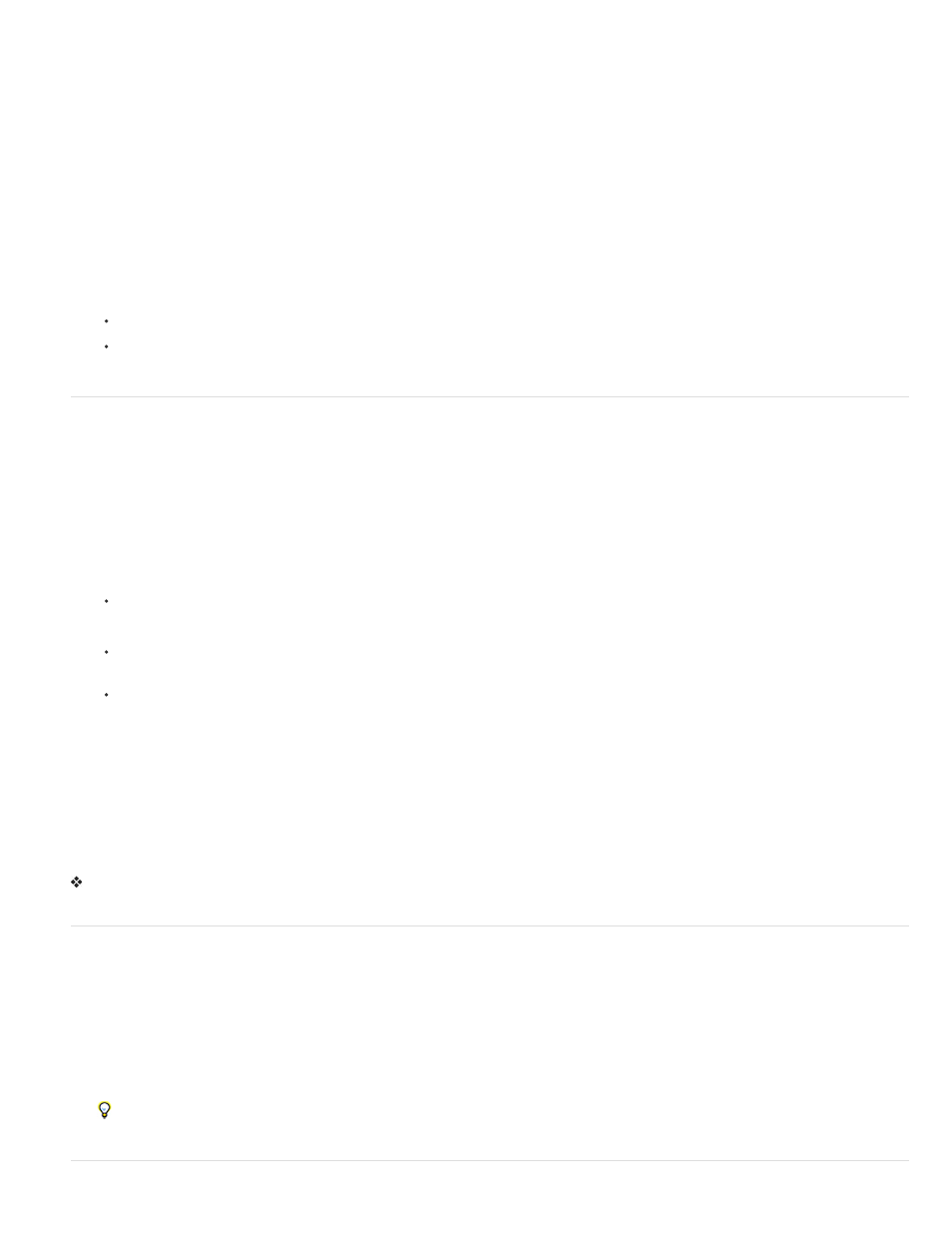Start an external editor for media files, Specify the editor to start from dreamweaver – Adobe Dreamweaver CC 2014 v.13 User Manual
Page 351

Start an external editor for media files
You can start an external editor from Dreamweaver to edit most media files. You can also specify the editor you want Dreamweaver to start to edit
the file.
1. Make sure the media file type is associated to an editor on your system.
To find out what editor is associated with the file type, select Edit > Preferences in Dreamweaver and select File Types/Editors from the
Category list. Click the file’s extension in the Extensions column to view the associated editor or editors in the Editors column. You can
change the editor associated to a file type.
2. Double-click the media file in the Files panel to open it in the external editor.
The editor that starts when you double-click the file in the Files panel is called the primary editor. If you double-click an image file, for
example, Dreamweaver opens the file in the primary external image editor such as Adobe Fireworks.
3. If you don’t want to use the primary external editor to edit the file, you can use another editor on your system to edit the file by doing one of
the following:
In the Files panel, right-click (Windows) or Control-click (Macintosh) the filename and select Open With from the context menu.
In Design view, right-click (Windows) or Control-click (Macintosh) the media element within the current page, and select Edit With from
the context menu.
Specify the editor to start from Dreamweaver
You can specify the editor you want Dreamweaver to use for editing a file type, and add or delete file types that Dreamweaver recognizes.
Explicitly specify which external editors should be started for a given file type
1. Select Edit > Preferences and select File Types/Editors from the Category list.
Filename extensions, such as .gif, .wav, and .mpg, are listed on the left under Extensions. Associated editors for a selected extension are
listed on the right under Editors.
2. Select the file type extension in the Extensions list and do one of the following:
To associate a new editor with the file type, click the Plus (+) button above the Editors list and complete the dialog box that appears.
For example, select the application icon for Acrobat to associate it with the file type.
To make an editor the primary editor for a file type (that is, the editor that opens when you double-click the file type in the Files panel),
select the editor in the Editors list and click Make Primary.
To dissociate an editor from a file type, select the editor in the Editors list and click the Minus (-) button above the Editors list.
Add a new file type and associated editor
1. Click the Plus (+) button above the Extensions list and enter a file type extension (including the period at the beginning of the extension) or
several related extensions separated by spaces.
For example, you might enter .xml .xsl if you wanted to associate them with an XML editor installed on your system.
2. Select an editor for the file type by clicking the Plus (+) button above the Editors list and completing the dialog box that appears.
Remove a file type
Select the file type in the Extensions list and click the Minus (-) button above the Extensions list.
Note: You can’t undo after removing a file type, so be sure that you want to remove it.
Use Design Notes with media objects
As with other objects in Dreamweaver, you can add Design Notes to a media object. Design Notes are notes associated with a particular file, that
are stored in a separate file. You can use Design Notes to keep track of extra file information associated with your documents, such as image
source filenames and comments on file status.
1. Right-click (Windows) or Control-click (Macintosh) the object in the Document window.
Note: You must define your site before adding Design Notes to any object.
2. Select Design Notes for Page from the context menu.
3. Enter the information you want in the Design Note.
You can also add a Design Note to a media object from the Files panel by selecting the file, revealing the context menu, and choosing
Design Notes from the context menu.
344
